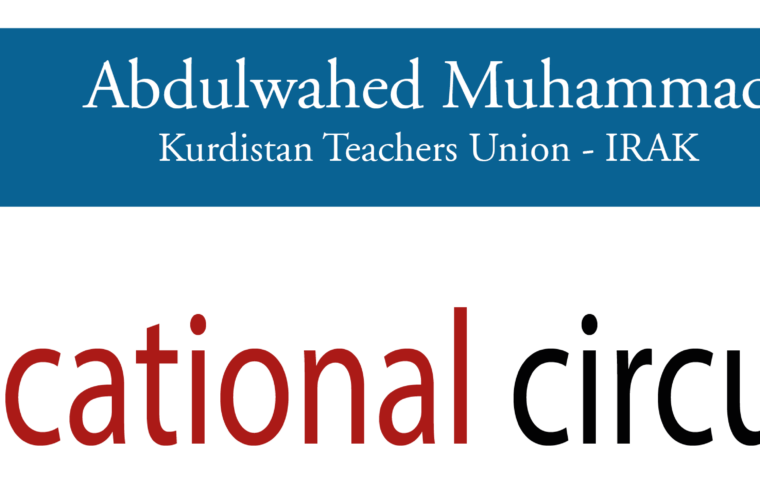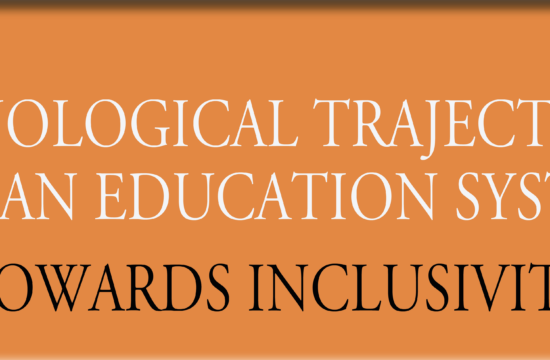Abdulwahed Muhammad
Kurdistan Teachers Union – IRAK
The Norwegian Council for the Displaced has performed a thorough investigation into the situation in Iraq in general, and education in particular. The analysis found that during the start of the war against ISIS, the Iraqi government cut or curtailed aid to 5.2 million children in Iraq. Despite the fact that the Iraqi constitution and ministerial law require free education at all levels and the provision of educational prerequisites. 770 thousand people have been displaced and are living in and out of shelters. Since last year, 240000 people have not had access to school.
In fact, the Iraqi government has not followed UN recommendations, particularly the fourth article of its post-2015 program, which focuses on the education process in general and makes specific appeals to the education process in Iraq for the displaced. They had asked funds to assist disadvantaged children in obtaining an education, but the Iraqi government only handed them half of the $ 35 million.
Coordinator of the Norwegian Foundation, the greatest method to find jobs is to seek education and learning possibilities, particularly for young people who have more opportunities to study. ‚ If the Iraqi government fails to intervene immediately, the process will collapse quickly.‘ He stated that since the commencement of the ISIS battle in 2014, the education process has been completely forgotten, using Nineveh as an example. They claim that no teachers have been employed. This has cut the number of teachers by 32 percent. This happened in Iraq’s second-busiest zone. The number of teachers in this province has decreased from 40,000 to 25,000.
Normally, cutting the number of teachers has resulted in an increase in the number of children leaving school. Female students now account for 28%, while boys account for 15%. In primary schools, the rate is lower, at 6.9% for females and 2.7% for boys. They are leaving school to work to support their families, which is illegal under international law and violates the rights of humans and children. According to the Norwegian Organization, despite Iraq’s strong financial position, its schools operate in two or three shifts. The number of students in one shift is still more than 650. On the other hand, 50% of school buildings were destroyed during the fouryear terrorist conflict.
The current government has failed to take any major efforts toward rebuilding them. This is the educational circumstance in Iraq. This has enraged the Iraqi people, who have reached a boiling point. They are constantly clamoring for the removal of political leaders who have exacerbated the situation. I’ve proclaimed this solely to inform and request assistance from the Kurdistan administration in reviving the education process from its current state. The Kurdistan government, in particular, must provide for the educational process, including teachers, school buildings, and curriculum. Above all, a clear educational philosophy must be offered because there are several flaws, deficiencies, and issues at the heart of the process. Without a meaningful response, there will be a bleak future. Then every try will be fruitless!
To sum up, The Norwegian Council for the displaced has conducted a study on the situation in Iraq, revealing that the Iraqi government has reduced assistance to 5.2 million children since the start of the war against ISIS. Despite the Iraqi constitution and ministerial law stating that education at all levels is free, 770,000 displaced children have not received education since last year. The Iraqi government has not complied with UN recommendations and has given half of the $35 million requested to help the poor children. Tom Kosta, Senior Coordinator of the Norwegian Foundation, warns that the best way to find jobs is to find education and learning opportunities, especially for young people with more opportunities to study. The Norwegian Organization also notes that Iraq’s schools are two or three-shifts and that 50% of school buildings have been destroyed during the four years of the terrorist war. The Norwegian Council urges the government of Kurdistan to help recover the education process and provide a clear educational philosophy to address the weaknesses and shortages in the education system.











